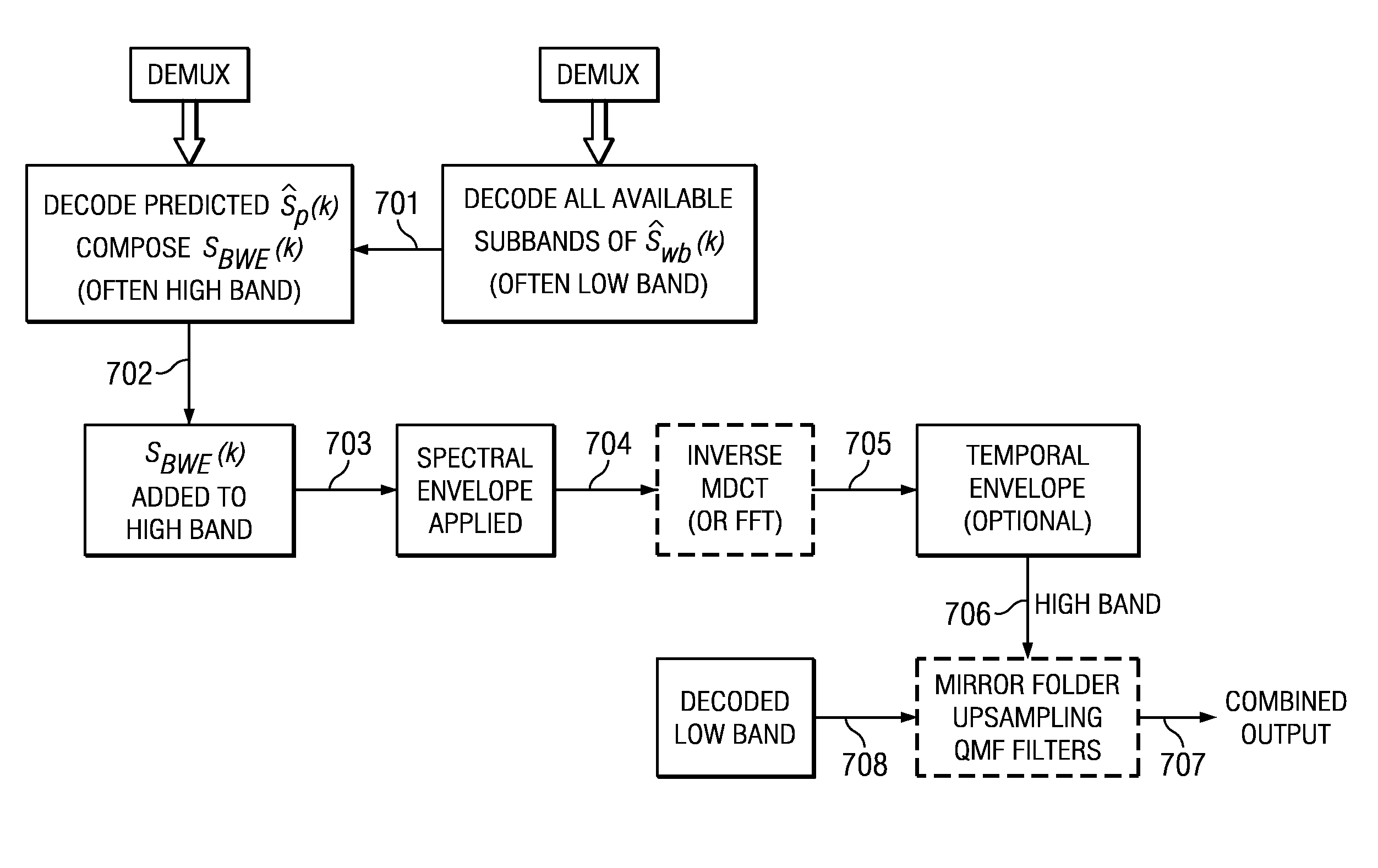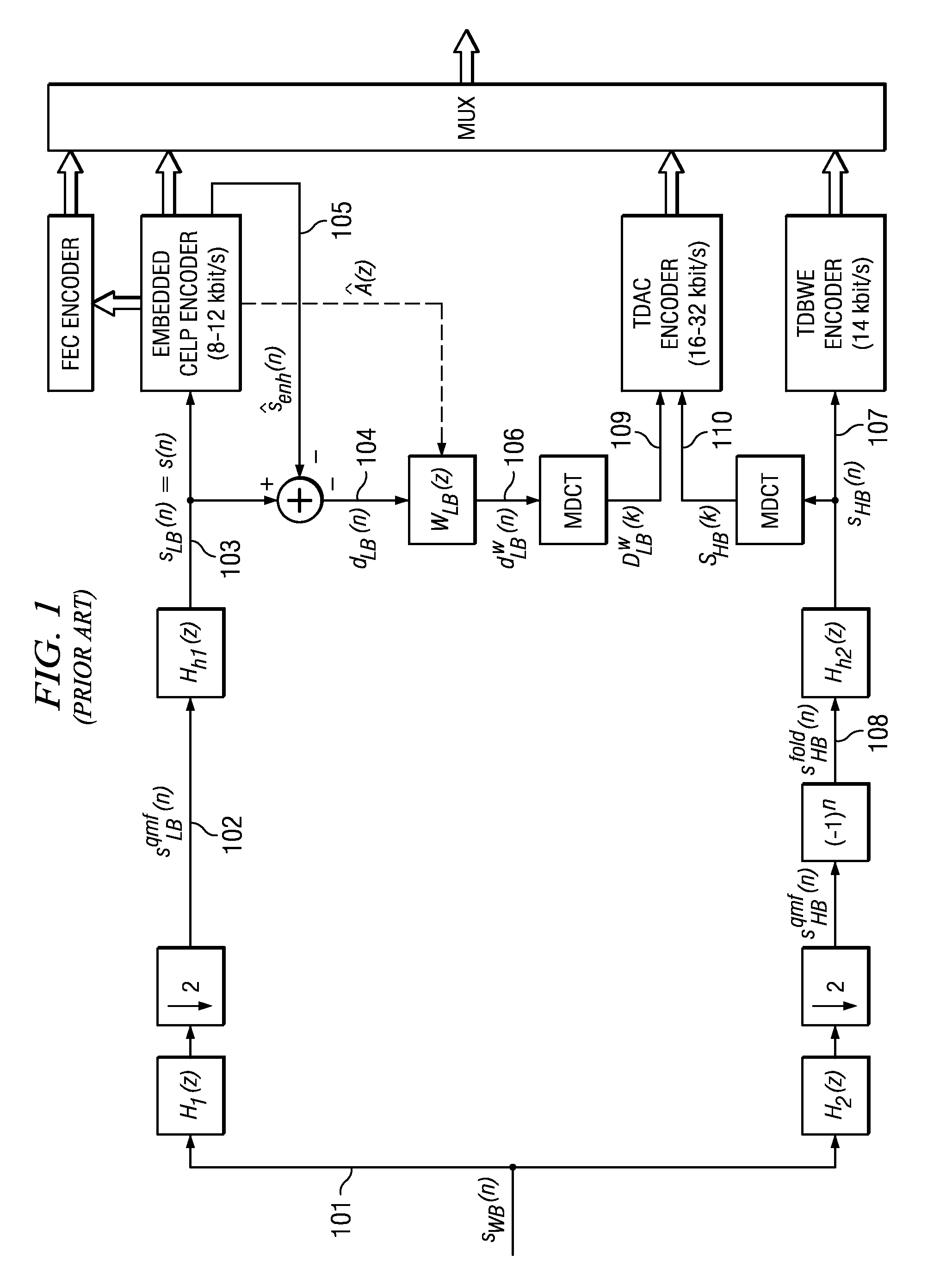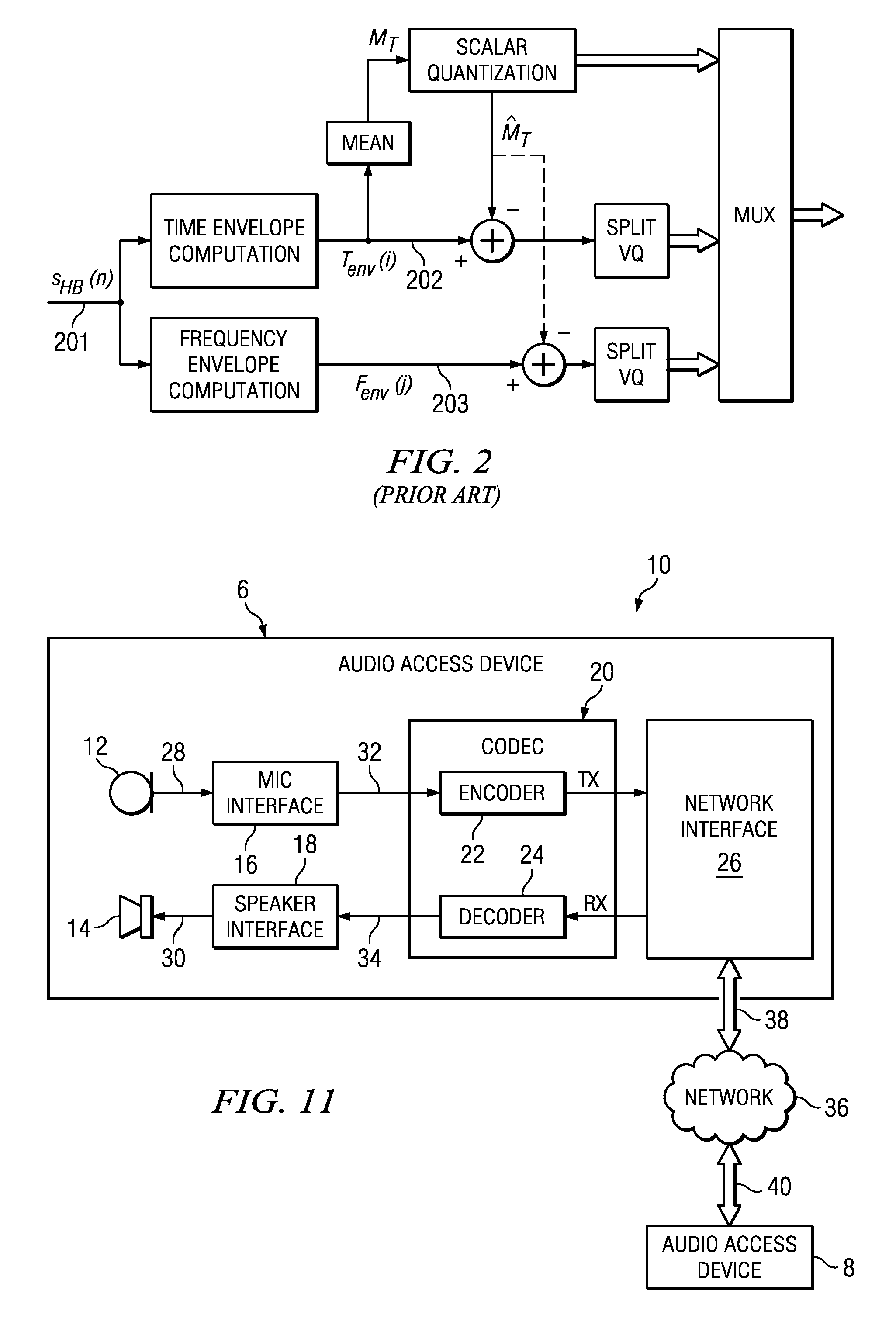Adaptive frequency prediction for encoding or decoding an audio signal
a frequency prediction and audio signal technology, applied in the field of speech/audio transform coding, can solve the problems of insufficient stable quality of voice, insufficient audio quality, and more consistent unvoiced sounds
- Summary
- Abstract
- Description
- Claims
- Application Information
AI Technical Summary
Benefits of technology
Problems solved by technology
Method used
Image
Examples
Embodiment Construction
[0079]The making and using of embodiments are discussed in detail below. It should be appreciated, however, that the present invention provides many applicable inventive concepts that may be embodied in a wide variety of specific contexts. The specific embodiments discussed are merely illustrative of specific ways to make and use the invention, and do not limit the scope of the invention.
[0080]The present invention will be described with respect to embodiments in a specific context, namely a system and method for performing low bit rate speech and audio coding for telecommunication systems. Embodiments of this invention may also be applied to systems and methods that utilize speech and audio transform coding.
[0081]Embodiments of the present invention include systems and methods of intra frame frequency prediction both with and without having bit budget. The intra frame frequency prediction with a bit budget can work well for spectrum structures that are not enough harmonic. Intra fr...
PUM
 Login to View More
Login to View More Abstract
Description
Claims
Application Information
 Login to View More
Login to View More - R&D
- Intellectual Property
- Life Sciences
- Materials
- Tech Scout
- Unparalleled Data Quality
- Higher Quality Content
- 60% Fewer Hallucinations
Browse by: Latest US Patents, China's latest patents, Technical Efficacy Thesaurus, Application Domain, Technology Topic, Popular Technical Reports.
© 2025 PatSnap. All rights reserved.Legal|Privacy policy|Modern Slavery Act Transparency Statement|Sitemap|About US| Contact US: help@patsnap.com



